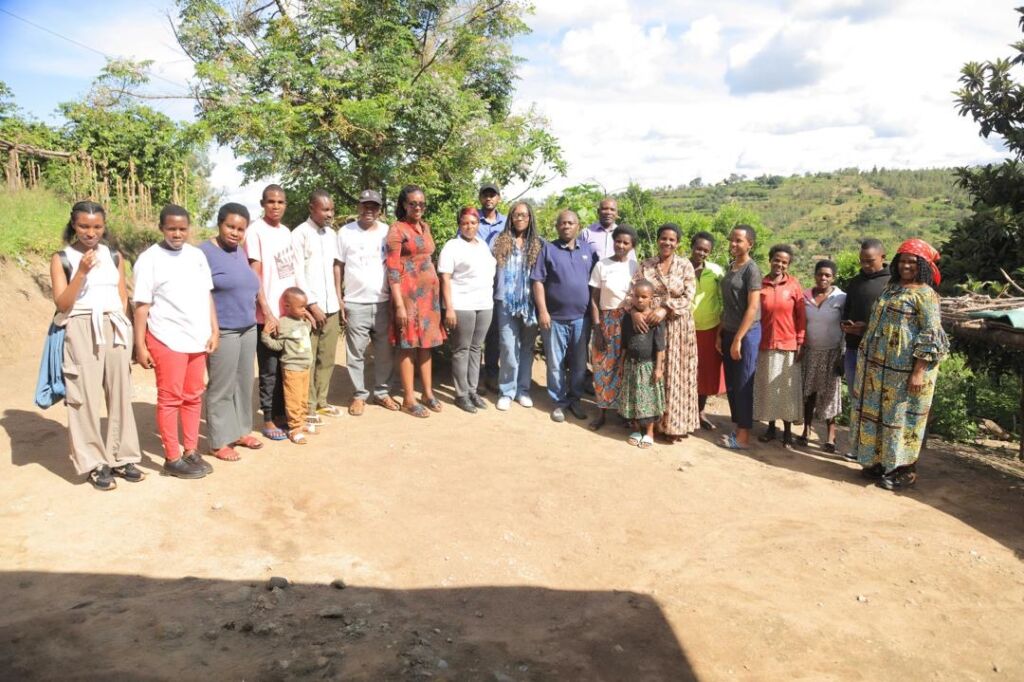Sparking Change: Working for Equity and Inclusivity in Biodiversity Decision-Making through Amplifying the Voices of Communities
Communities, Nature, and their role in supporting biodiversity.
Images taken on a field visit to the Ruhango district.
Around the world, biodiversity is disappearing at an unprecedented rate. This isn’t just a crisis for ecosystems—it’s a crisis for people. Biodiversity supports food security, cultural identity, economic livelihoods, and climate resilience. Yet, the response to this crisis is too often shaped by top-down policies that overlook local communities lived experiences and values.
The EU-funded PLANET4B project aims to explore how to make more inclusive and effective decisions regarding biodiversity. Grounded in the belief that transformative change is essential—and must be equitable and inclusive—the project includes 11 case studies from across Europe.
Since 2022, researchers from the Centre for Agroecology, Water and Resilience at Coventry University have led the UK case study in collaboration with Dadima’s CIC, an intergenerational walking community that hosts monthly walks in the Chilterns, bringing people together across generations to share stories and connect with nature.
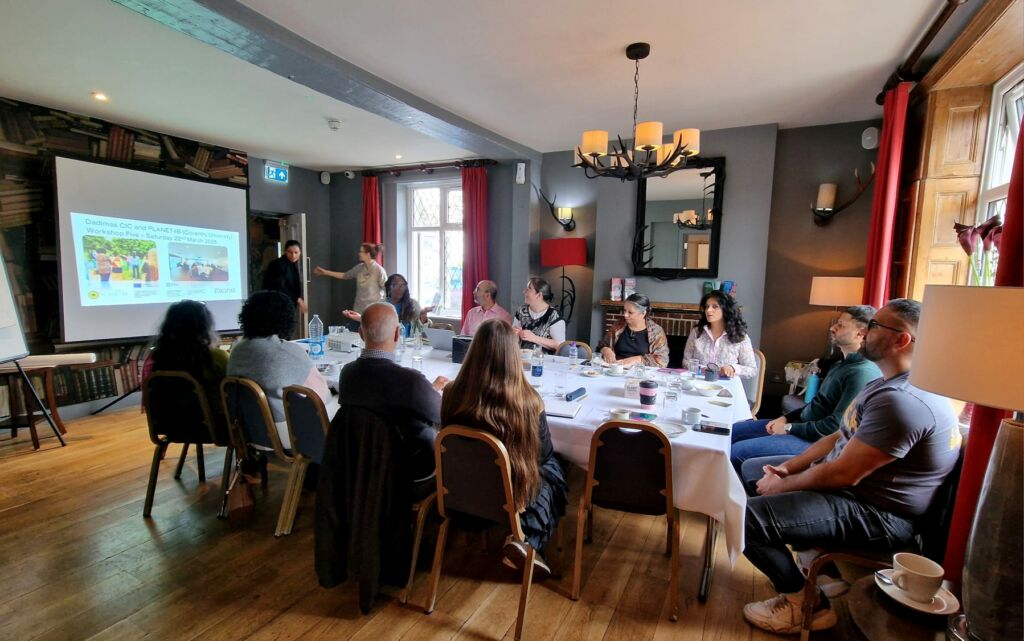
Learning Community UK Case Study workshop activities
The UK case study, Opening Up Nature and the Outdoors to Ethnic Minority Communities, focuses on amplifying the voices of ethnic minority men and women. It explores how heritage, tradition, and culture shape their experiences of nature and considers what this means for engagement in biodiversity decision-making.
In April 2025, the Global Initiative for Environment and Reconciliation GER Rwanda and Dr Runyambo Irakiza from the University of Lay Adventists of Kigali welcomed Dr Geraldine Brown and her colleague Dr Liliane Binego to Rwanda. The visit provided an opportunity to witness firsthand the impact of community-led initiatives addressing environmental challenges such as biodiversity loss and to conduct two workshops directly engaging with key stakeholders in Rwanda, including local farmers, community leaders, conservation practitioners, policymakers, academics, and youth representatives, to capture the views, experiences, and actions of local communities.
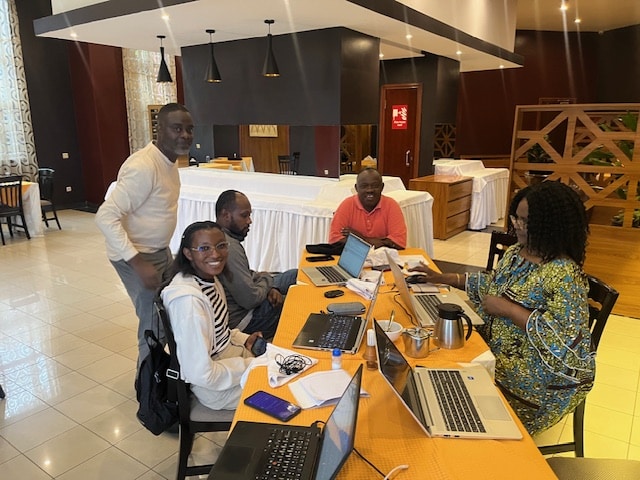
Project team (Mr Innocent Musore, Dr Runyambo Irakiza, Richard Mugisha, Delphine Uwumuremyi
d Dr Liliane Binego (Coventry University)
Why Rwanda?
Rwanda has become an essential voice in sustainable development and conservation in Africa. The country demonstrates that pursuing environmental goals while advancing social and economic well-being is achievable. However, like many regions, the path to a sustainable future is intricate. It necessitates collaboration across sectors, a willingness to scrutinise assumptions, and spaces where diverse voices can unite to rethink what is possible. This was a welcome opportunity to work with and learn about the initiatives carried out by GER Rwanda, a local organisation at the forefront of delivering community initiatives involving women and young people. These initiatives focus on the relationship between environmental issues such as biodiversity, conservation, sustainable livelihoods, community engagement, and peacebuilding. The visit provided an opportunity for a deeper understanding of the relationship between culture, traditions, heritage and biodiversity through spending time with GER Rwanda, learning about the context in which they operate, and engaging in a knowledge exchange process.
What Are the Workshops About?
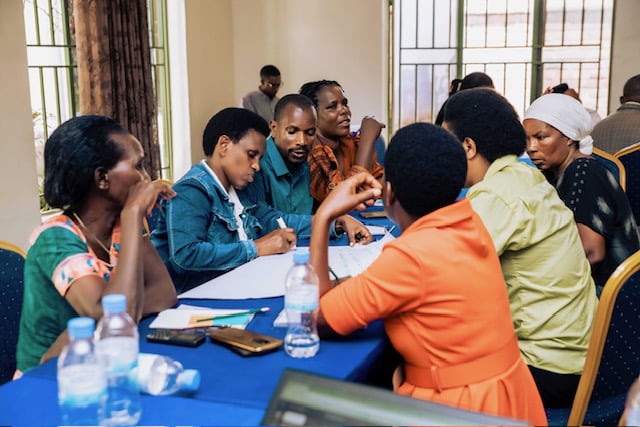
The workshops were underpinned by a theory of change and designed to foster open dialogue among key Rwandan actors working at the intersection of communities, biodiversity, and policy. These workshops were not simply about sharing information—they were about co-creating understanding.
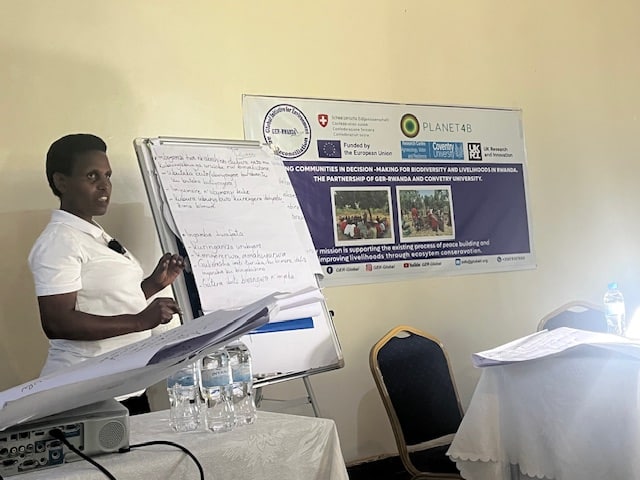
Participants explored questions such as:
• What does “transformative change” mean in the context of biodiversity?
• How do communities in Rwanda perceive conservation policies and their role within them?
• What assumptions—visible or hidden—shape current approaches to environmental decision-making?
• How can we build bridges between local knowledge systems and institutional frameworks?
Applying learning from the systems mapping approach used in PLANET4B, the workshop provided a safe yet critical space where participants reflected, challenged, and built upon one another’s ideas to open up alternative pathways for truly inclusive biodiversity solutions by surfacing the values and knowledge that influence action, held within communities. Their perspectives are crucial because they bring expertise and carry their communities’ hopes, challenges, and insights.
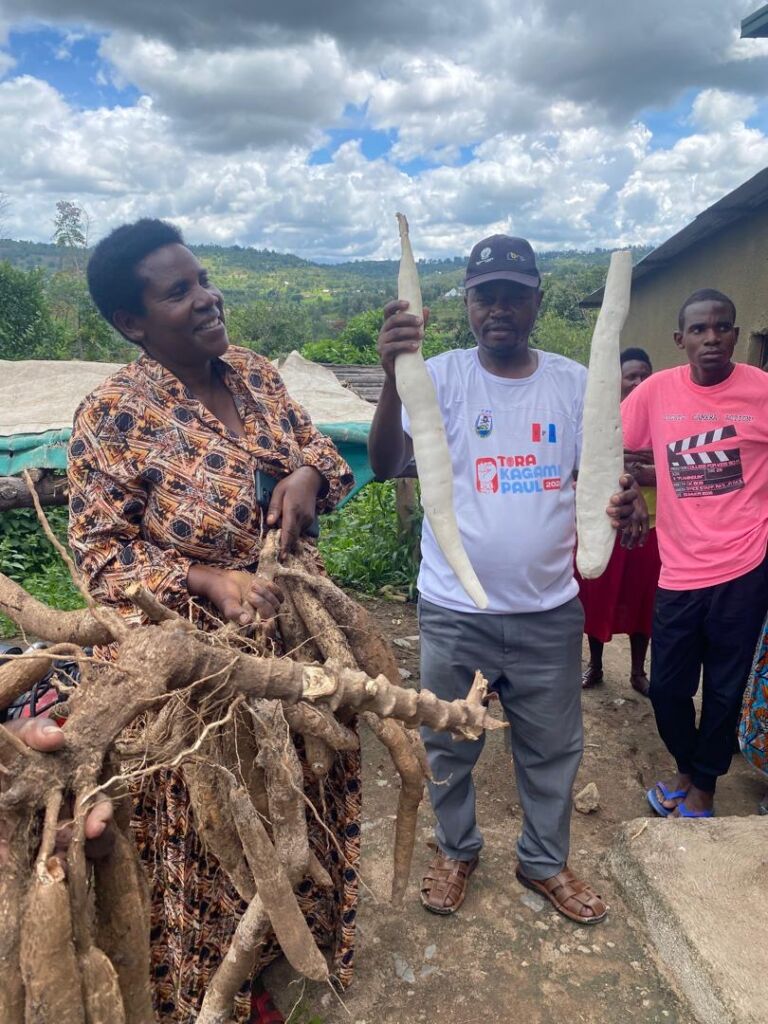
Our approach emphasises listening and learning rather than imposing predefined frameworks. The intention is for the visit to begin a deeper, longer-term collaboration built on the foundation of PLANET4B between researchers in Coventry University’s Centre for Agroecology Water and Resilience and GER Rwanda.
What Comes Next?
These workshops are a starting point, not a conclusion.
Insights generated will feed into broader research and engagement efforts stemming from PLANET4B, helping shape strategies that are both locally rooted and globally relevant. They will also serve as a model for similar processes in other regions where the need for equitable transformation is just as urgent.
Most importantly, we hope to amplify community voices so that they become central to shaping conservation futures—not just in Rwanda but around the world.
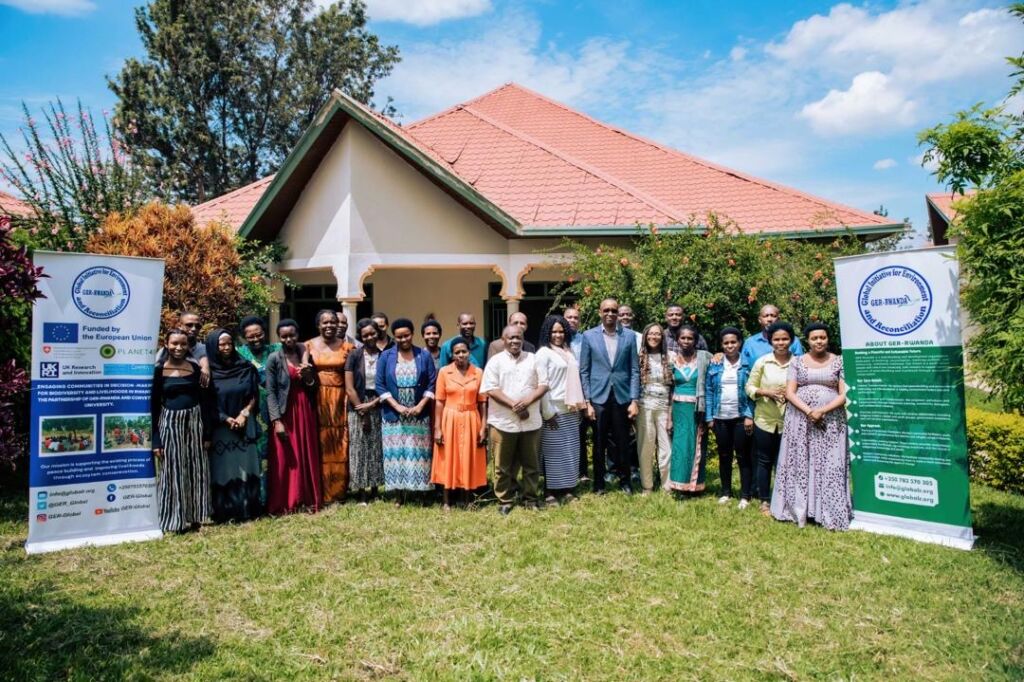
Amplifying community voices
Transformation doesn’t happen in isolation—it happens through connection. If you’re interested in learning more about PLANET4B, or supporting similar dialogues in your context, we’d love to hear from you.
Dr Geraldine Brown, Associate Professor and Impact Lead, Centre for Agroecology, Water and Resilience

